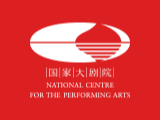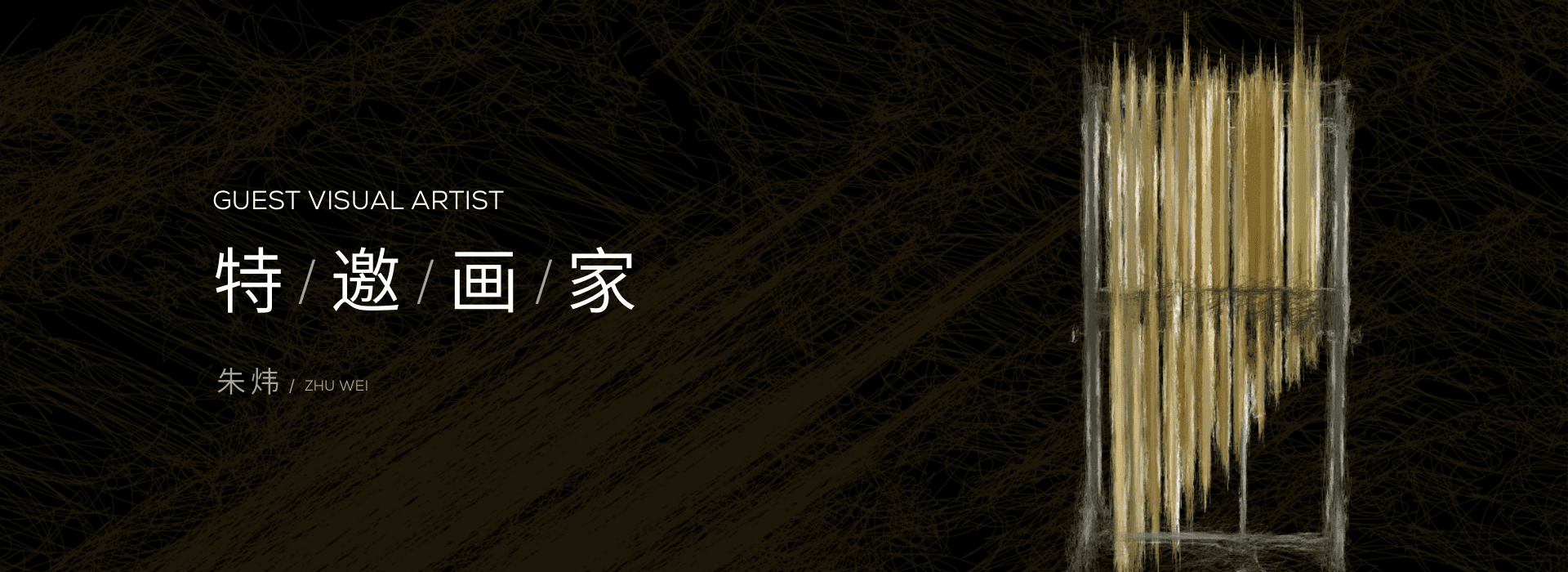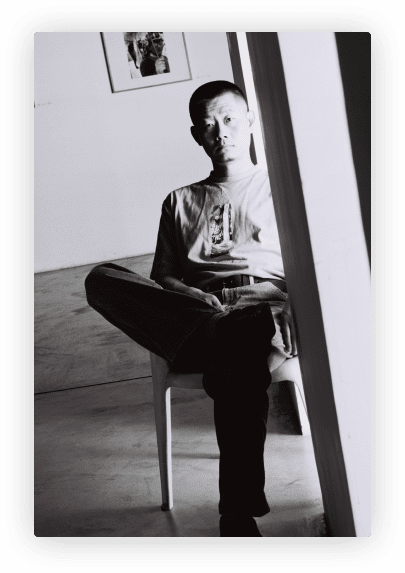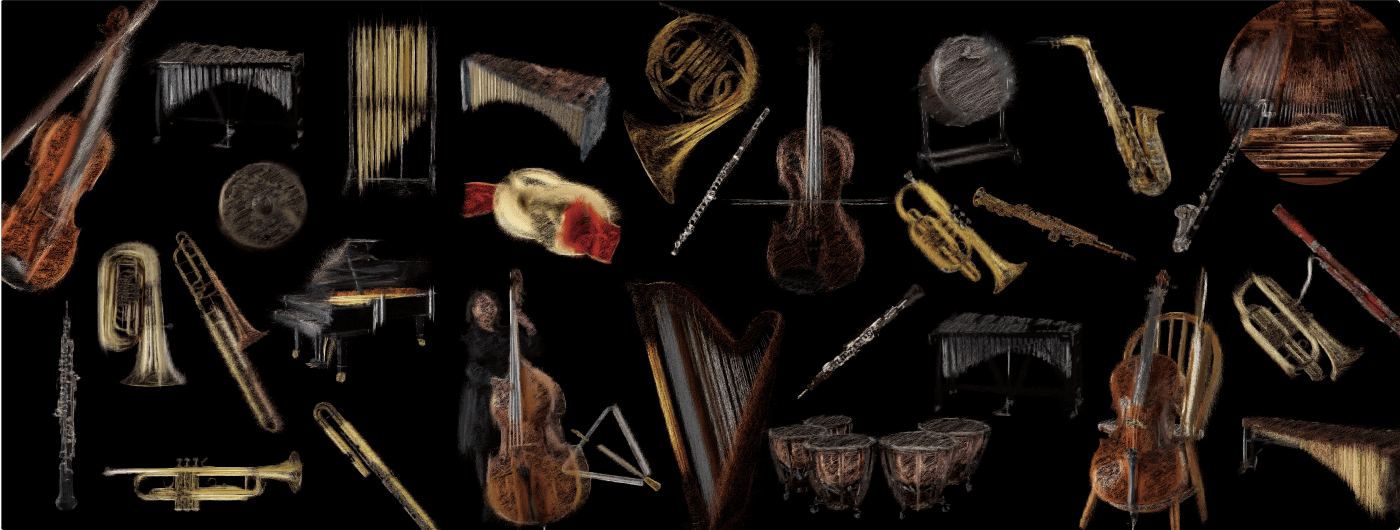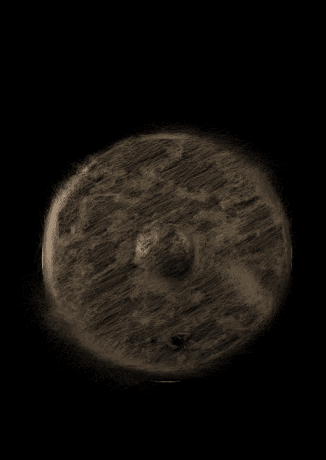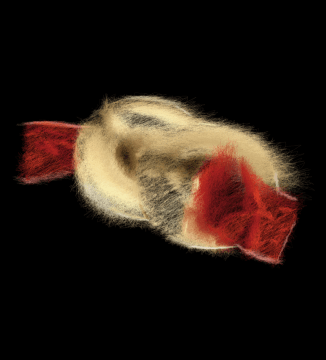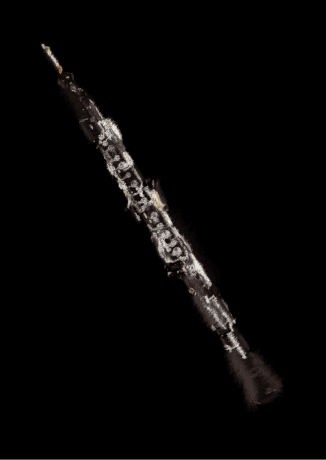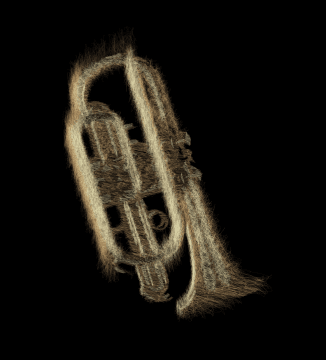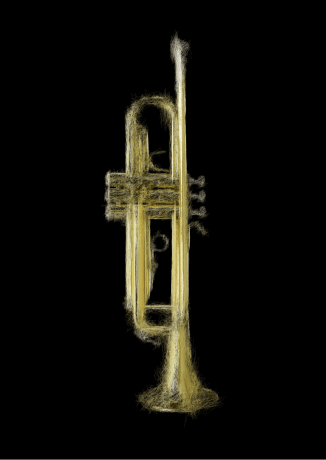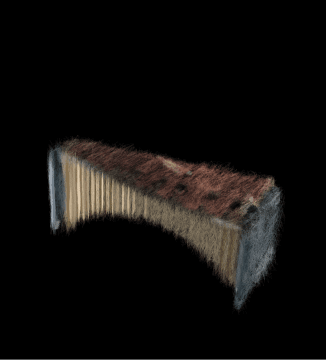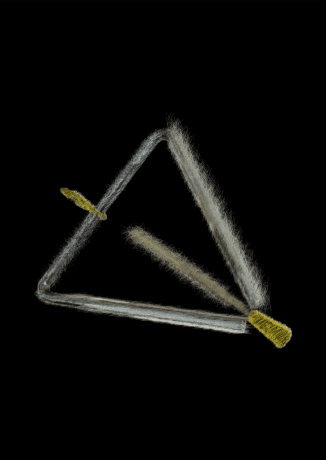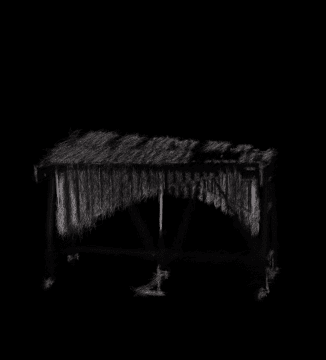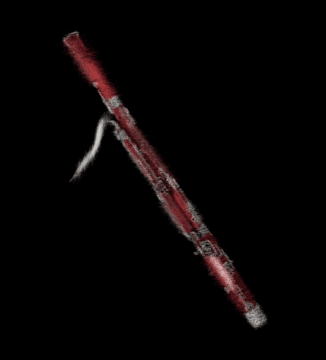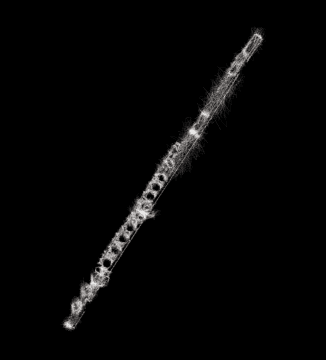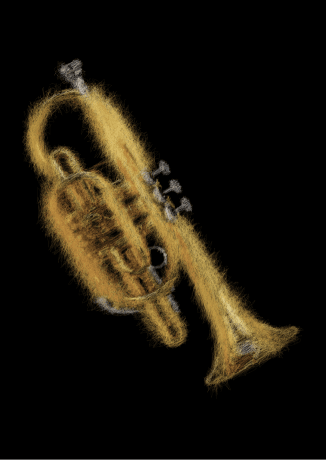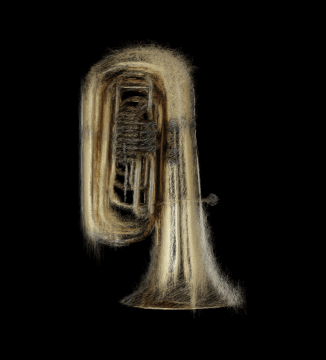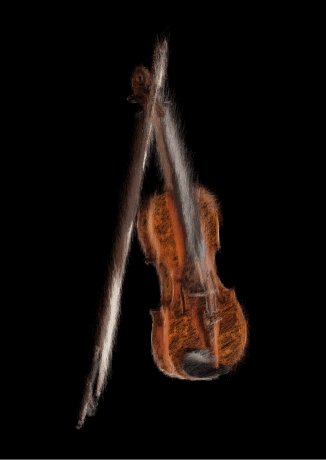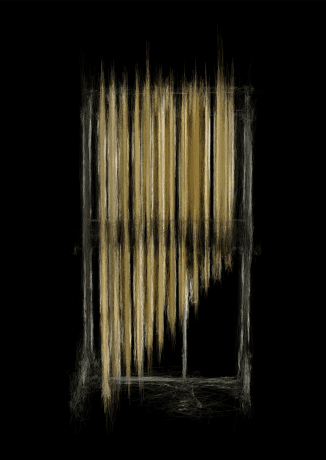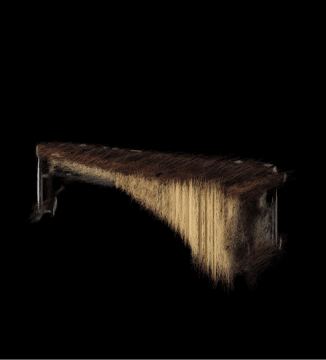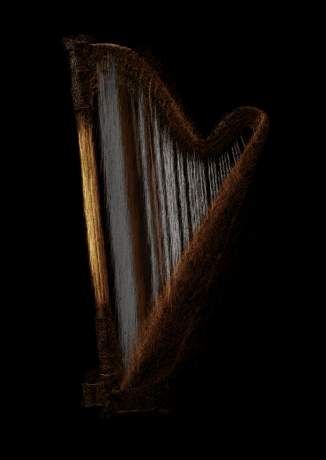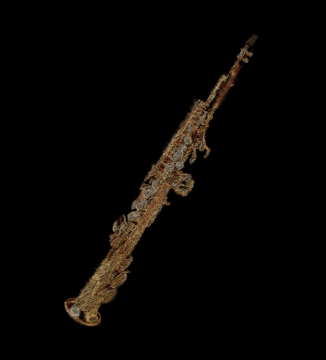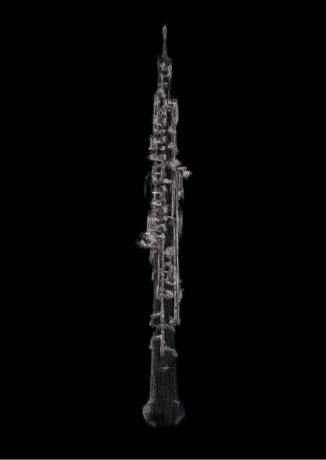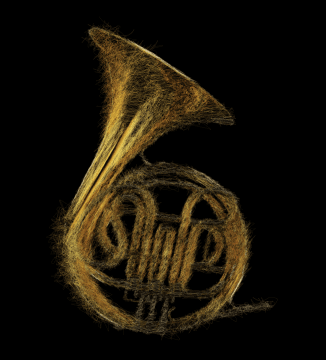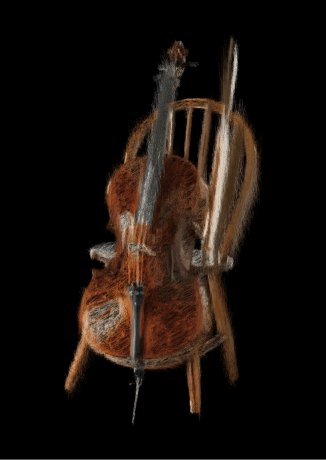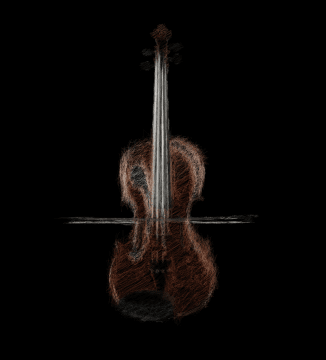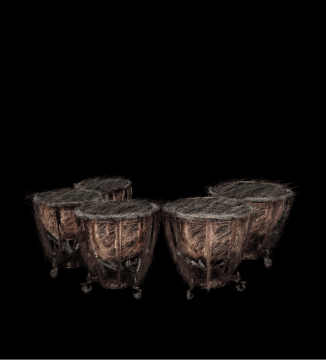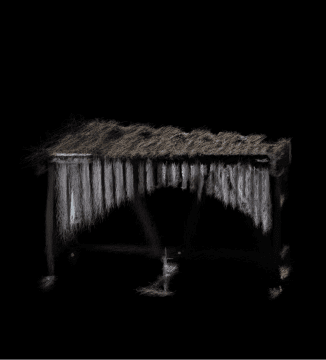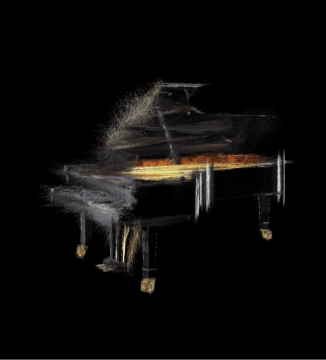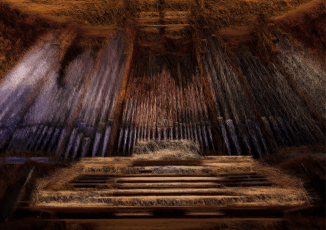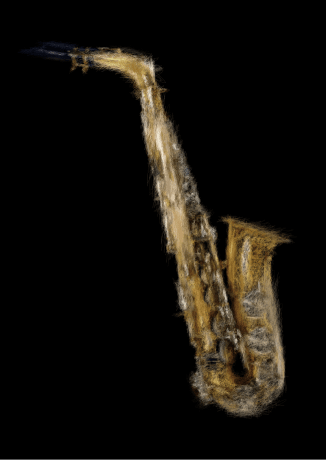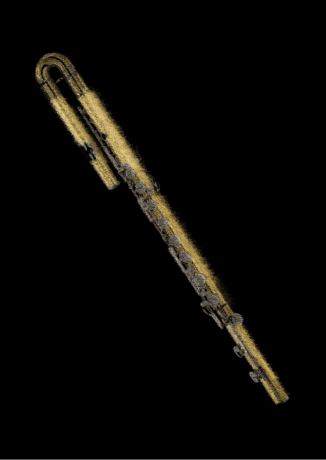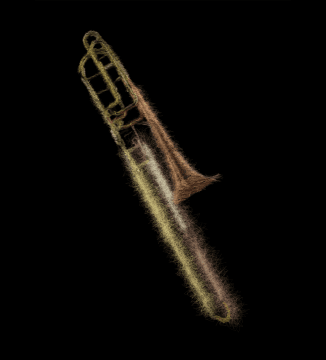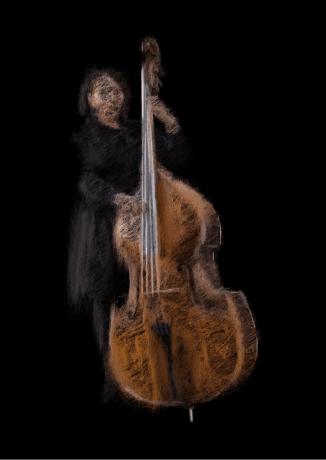Since our 2019/20 season, Mr. Zhu Wei has been appointed as a guest visual artist for the China NCPA Orchestra, drawing inspiration from our concert seasons and using his ingenuity as a painter in linking music with performing arts. Following his Cadenza for the 2019/20 season, Beethoven 250, Quartet and Swan Lake for the 2020/21 season, and Glows from Within for the 2021/22 season, Zhu has created a series of digital paintings with the same title as the theme of our season this year - Zeitgeist.
With his affection for music and for our lovely musicians, Zhu has over the years not only always loved to paint as we propose but been able also to combine perfectly his fantastic ideas and superb techniques with musical themes. But I was a little worried when requesting him to create on "zeitgeist", the theme for our new 2022/23 season, because it was indeed a tough proposition: To achieve a perfect fusion of elements relating to music and the zeitgeist theme in a painting, whether it be abstract or representational, it requires the artist to make extraordinary decisions on how the image design, choice of technique, conceptual contemplation and many other things should go. And, in my eyes, representational techniques seemed inappropriate to express a grand philosophical subject like "zeitgeist" while it would not be easy to use completely abstract techniques to distinctly embody elements of music in a work of art. So, by leaving him a puzzle to address, I myself felt it "an impossible mission", and I was worried that he, awkward as he might be about declining it, would be unable, after spending too much time and energy, to find a path satisfactory to himself and us.
Every time we communicated about the subject matter, it always took a very short time so that I could hardly be sure whether our communication was highly efficient or we both had nothing more to say about the topic in question. But facts have proven time and again that behind those brief exchanges was hidden his penetrating insight and imagination, and his rich and sensitive rumination about things, which was ultimately proclaimed in his works in the most convincing and touching ways. This, I presume, is what we say, of an art guru, is "having a whole picture of bamboo in his heart": When you have a well-thought-out plan, idle talk is unnecessary and the only thing you need to do is simply execute the plan. The final results were, as always, breathtaking.
In these 31 paintings titled Zeitgeist, the artist represents the images of orchestral instruments with digital techniques. These instruments cannot be more familiar to a musician, who could even draw them clearly with his or her eyes closed. But when I received this new series of paintings from Zhu, I couldn't help but begin doubting and reexamining my perception above: When you cannot be more familiar with something, more often than not, your perception of it builds up imperceptibly, a process more or less attended by an ossification of views, a loss of passion, taking it for granted in practice, and even a tinge of stubbornness and fallacy, pride and prejudice. And, therefore, re-examining often, from new points of view, things that subconsciously we feel very familiar with, is likely to become a precious chance of self-criticism, self-discovery and self-refinement. These instruments with their rebuilt images, while they look refreshing and amazing, also prompt us to think anew about their images, functions and meanings. The painting technique between the abstract and the representational not only keeps the instruments recognizable but somewhat frees them from the burden of their rigid, fixed bodies; while the flowing and complicated lines sketch the essential peculiarities of the instruments , these instruments unfettered by their bodies appear to have not only become music in itself but changed from physical objects to things symbolic. Those instruments made of metal, wood or other material all of sudden feel light, limpid and graceful in our hands as musicians, as if unable to converge and diverse instantaneously, to fly any time to any place far away. If we say that the essence of music is about free souls, then these musical instruments are just where those souls dwell, right? And being able to re-examine these instruments and their essence from such a point of view is just nothing less than a precious spirit that is likely to move any times forward, isn't it?
From the bottom of my heart I thank the artist for his digital paintings which allow my colleagues and I do not just re-discover the essence of musical instruments but re-think about the spiritual meaning of music-related work per se: In those complicated but graceful lines is held in store a miraculous power which builds up to music that then gives birth to a greater still power defining and also elevating the spiritual height of every age; and this is very mission and duty of all musicians. A musical instrument or an orchestra must have its own spirit and soul to produce touching music. The same is true of an age, which must straighten its spine of spirit up and have a living soul to become one full of vigor. In all this, there is inevitably our share of duty. Let us, therefore, use these works of Zhu to spur ourselves on to be an orchestra with its own spirit and soul that performs for the transmission, innovation and mutual learning of the spirit of the times.
I'd like to extend my gratitude to Mr. Zhu once again and I'm also looking forward to seeing more of his thought-provoking works going forward.
